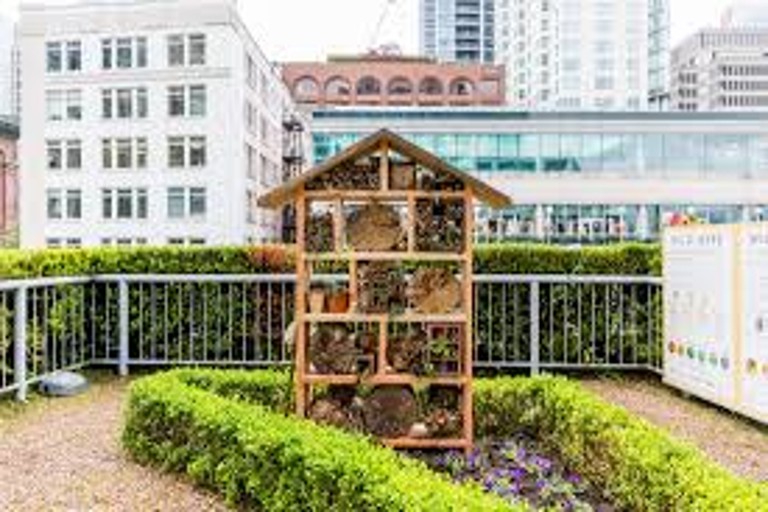Nature & Outdoors
Urban Beekeeping on the Rise in Vancouver
With city bylaws now supporting rooftop hives, dozens of new beekeepers are bringing pollinators back to urban spaces while offering honey infused with the unique floral notes of the Pacific Northwest.
By Michael Nguyen • 2025-10-04

On rooftops overlooking Vancouver’s skyline, the gentle hum of honeybees has become an unexpected part of the city’s rhythm. Urban beekeeping, once a niche hobby, is now thriving thanks to progressive bylaws and a growing awareness of pollinators’ vital role in sustaining urban ecosystems.
Since the City of Vancouver relaxed its hive regulations in 2014, participation has surged. What began with a handful of hobbyists has grown into a movement supported by schools, restaurants, and businesses. “We’ve gone from curiosity to community,” says beekeeper and educator Rachel Tan. “People understand that bees aren’t pests — they’re partners.”
Tan manages more than twenty rooftop hives across the city, including those atop community centers and cafes. “Each hive reflects its neighborhood,” she says. “The honey from Kitsilano has floral notes from lavender gardens, while the Downtown Eastside hives pick up hints of clover and chestnut. You can literally taste Vancouver’s diversity.”
The urban beekeeping boom isn’t just about honey — it’s about balance. Bees pollinate roughly one-third of the city’s flowering plants, supporting community gardens and local agriculture. “Without them, urban green spaces would lose much of their vitality,” says environmental scientist Dr. Karim D’Souza. “They’re essential to urban biodiversity.”
For many residents, keeping bees has become an act of stewardship. “It’s meditative,” says beekeeper James Li, who tends two hives on his Mount Pleasant apartment building. “You start noticing weather patterns, flowering cycles, and how everything is connected. It slows you down — and you learn humility.”
The city’s support has also encouraged educational outreach. Programs like Hives for Humanity and UBC’s Bee School teach residents how to care for colonies responsibly and avoid overcrowding. “We focus on sustainability first,” Tan notes. “Healthy bees mean a healthy city. We don’t want honey at the cost of the hive.”
Still, challenges remain. Rising temperatures, pesticide exposure, and habitat loss continue to threaten urban bee populations. “We’ve seen colonies collapse after hot summers,” says Dr. D’Souza. “It’s a reminder that even in cities, climate change is at our doorstep — and the smallest creatures feel it first.”
Restaurants and artisans have embraced local honey as both ingredient and symbol. From cocktails to glazes, “city honey” appears on menus across Vancouver. “It’s more than a trend,” says chef Ana Morales. “It’s flavor with a conscience. When you drizzle that honey, you’re tasting the work of a neighborhood.”
Community gardens now host pollinator corridors — strips of wildflowers designed to help bees navigate across the concrete sprawl. “It’s not just about keeping bees; it’s about making the city livable for them,” Tan explains. “Every patch of flowers, every rooftop hive, becomes part of a bigger ecosystem.”
As the sun dips behind the mountains, the rooftops buzz softly under golden light. The city hums below, unaware that above its noise, thousands of bees are quietly shaping a greener future. In their steady flight, Vancouver’s beekeepers see a metaphor for urban life itself — small acts of care creating something sweet, enduring, and shared.